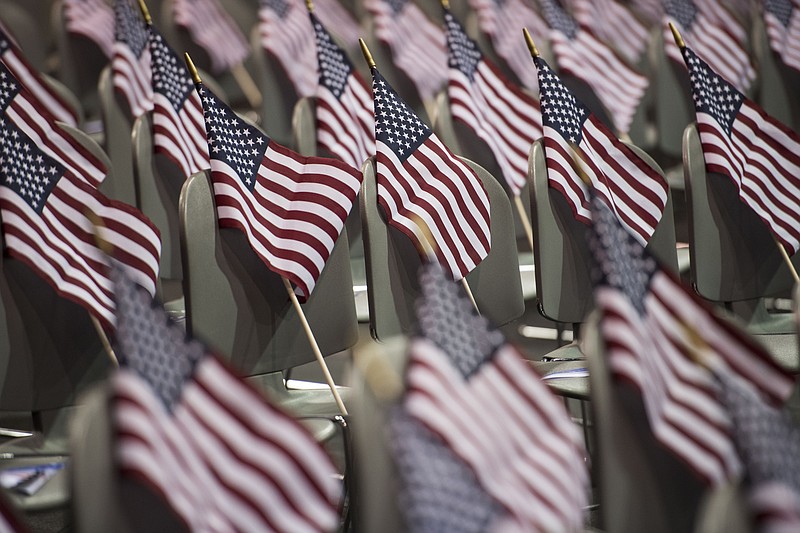WASHINGTON -- President-elect Joe Biden plans to reverse many, if not all, of the Trump administration policies that immigration lawyers and officials say have reduced the flow of migrants to the United States, aiming to get things back to the way they were before starting on any fresh goals.
Biden has pledged to "restore and defend the naturalization process for green-card holders," and to "support family-based immigration." He also has said he wants to preserve "preferences for diversity in the current system," because Trump has sought to eliminate what is commonly known as the diversity visa lottery that ensures that the United States draws immigrants from everywhere instead of the small number of countries that are overrepresented in family and employment-based immigrant visas.
Biden's new ideas -- increasing the overall number of work-based immigration visas, changing the high-skilled work visas known as H1-Bs to ensure less abuse of the workers and the system, expanding paths to citizenship for long-term agricultural workers, and allowing cities to petition the federal government for higher levels of immigration to support their growth -- probably will have to wait, and will require bipartisan cooperation, experts say.
But the Biden administration will first have to figure out how to get the paperwork flowing again. Visa processing times and admissions, particularly for citizens of Africa, Asia and South America, have slowed since President Donald Trump took office because of changes that administration officials say were necessary to properly vet foreign travelers.
Some of the most notable declines in immigrant visa issuance under the Trump administration have occurred among nationals that Trump publicly disparaged or targeted specifically.
Haitians for example, received 67% fewer immigrant visas between 2016 and 2019. Mainland Chinese received 35% fewer immigrant visas during that same time period. Iranians, among the nationalities that Trump's travel ban targeted, received nearly 80% fewer immigrant visas.
Immigration lawyers say the Trump administration's added protocols, which they say have included frequent "requests for evidence" or additional paperwork, as well as more interview requirements, created unnecessary additional bureaucracy without showing a demonstrable impact on safety. U.S. Citizenship and Immigration Services also has raised processing fees and has struggled with funding shortages, and backlogs have lengthened significantly.
"Visa processing ... is going to be very time-consuming and complicated," said Ali Noorani, the chief executive of the National Immigration Forum, an immigrant advocacy group, referring to the effort to unravel the Trump administration's changes.
Sen. Dick Durbin, D-Ill., a Biden ally who has consulted with the Biden campaign and transition team on immigration policy, said one key change will be the leadership and staffing of the Department of Homeland Security and its immigration-related agencies, including U.S. Citizenship and Immigration Services; leaders will need to be familiar with the department, so they will know where to make the fixes, he said. Durbin said a major priority of the new administration will be unraveling hawkish Trump administration policies, many of which senior adviser Stephen Miller orchestrated as part of a restrictionist approach to immigration.
"We also have to make sure we clear the decks of Miller's acolytes in these agencies," Durbin added.


